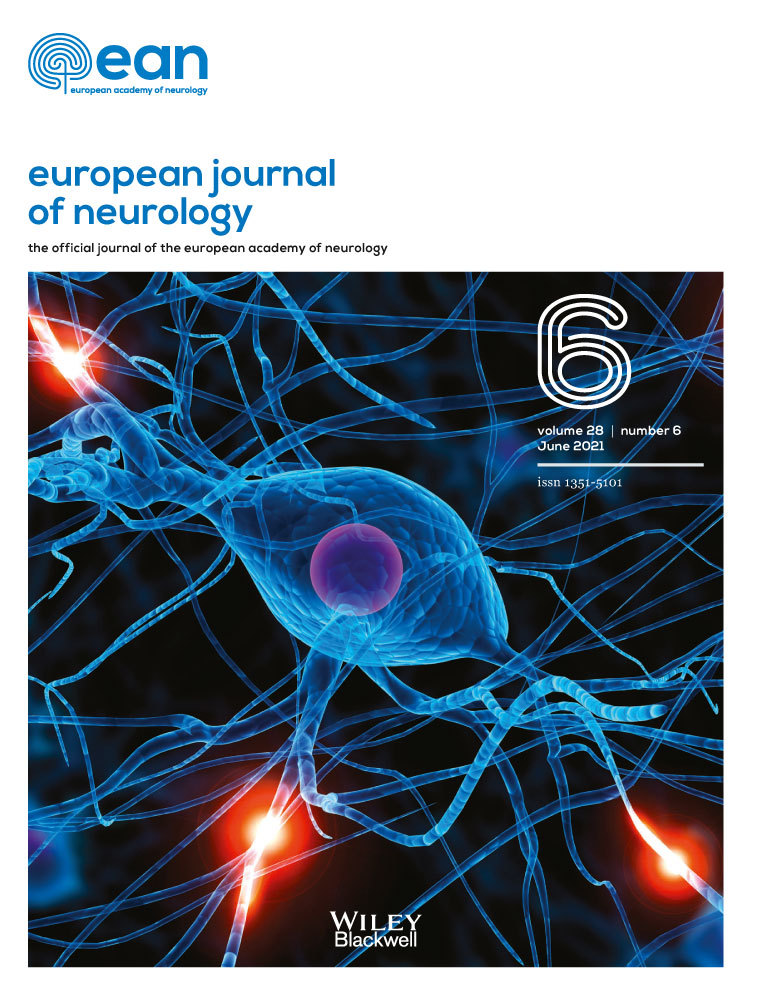Is the Symbol Digit Modalities Test a useful outcome in secondary progressive multiple sclerosis?
Funding information
None.
Abstract
Background
It is unclear which cognitive outcome measure is the most useful for clinical trials in multiple sclerosis. To investigate the usefulness of the Symbol Digit Modalities Test (SDMT) as a clinical outcome measure in secondary progressive multiple sclerosis (SPMS), we describe the frequency of worsening and improvement events in a large randomized controlled trial (RCT) dataset.
Methods
Using original trial data from the ASCEND trial (n = 889), a recent large RCT in SPMS, we describe worsening and similarly defined improvement with and without 3-month confirmation on the SDMT in the whole trial cohort and unconfirmed worsening and improvement on the Paced Auditory Serial Addition Test (PASAT) in a smaller subset (n = 107).
Results
Somewhat unexpectedly, SDMT scores steadily increased throughout the 2 years of follow-up in this trial. There were overall few SDMT worsening events throughout the trial (generally fewer than 10% of participants), but improvement events steadily increased from around 50% of participants with improvement at 12 weeks to more than 70% at 84 weeks and beyond. PASAT scores followed a similar pattern.
Conclusions
In this well-characterized clinical trial cohort, the SDMT does not reflect the steady cognitive decline that patients with SPMS experience. Both SDMT and PASAT scores improve throughout follow-up, possibly due to a practice effect. The SDMT may not be a useful outcome measure of disease progression in 2-year clinical trials in SPMS.
CONFLICT OF INTERESTS
Dr. Koch received consulting fees and travel support from Biogen, Novartis, Roche, Sanofi Genzyme, and EMD Serono. Dr. Mostert reports no disclosures. Dr. Repovic received consulting and/or speaking honoraria from Alexion, Biogen, Celgene, Roche, Sanofi Genzyme, Viela, and EMD Serono. Dr. Bowen received honoraria from serving on the scientific advisory board and speaker's bureau of Biogen, Celgene, EMD Serono, Genentech, and Novartis. He has received research support from AbbVie Inc, Alexion, Alkermes, Biogen, Celgene, Sanofi Genzyme, Genentech, Novartis, and TG Therapeutics. Prof. Uitdehaag received consultancy fees and/or research support from Biogen, Sanofi Genzyme, EMD Serono, Novartis, Roche, and Teva. Prof. Cutter served on data and safety monitoring boards for: Astra-Zeneca, Avexis Pharmaceuticals, Biolinerx, Brainstorm Cell Therapeutics, Bristol Meyers Squibb/Celgene, CSL Behring, Galmed Pharmaceuticals, Horizon Pharmaceuticals, Hisun Pharmaceuticals, Mapi Pharmaceuticals Ltd, Merck, Merck/Pfizer, Opko Biologics, OncoImmune, Neurim, Novartis, Ophazyme, Sanofi-Aventis, Reata Pharmaceuticals, Teva Pharmaceuticals, VielaBio Inc, Vivus, NHLBI (Protocol Review Committee), and NICHD (OPRU Oversight Committee); and consulting or advisory boards for: Biodelivery Sciences International, Biogen, Click Therapeutics, Genzyme, Genentech, GW Pharmaceuticals, Immunic, Klein-Buendel Incorporated, Medimmune, Medday, Neurogenesis Ltd, Novartis, Osmotica Pharmaceuticals, Perception Neurosciences, Recursion/Cerexis Pharmaceuticals, Roche, and TG Therapeutics. Dr. Cutter is employed by the University of Alabama at Birmingham and is President of Pythagoras, Inc., a private consulting company located in Birmingham, AL, USA.
Open Research
DATA AVAILABILITY STATEMENT
The data used in this study are available upon request from Biogen. Individual participant data collected during the trial will be shared after anonymization and on approval of a research proposal and data sharing agreement. Research proposals can be submitted online (www.biogenclinicaldatarequest.com).




